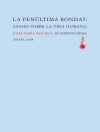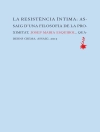Li Zehou’s thought has achieved wide popularity and influence among both academic readers and the broader Chinese-reading public. His culminating views on ethics are collected here in a series of essays that highlight the importance of Confucian philosophy today. Li’s groundbreaking ethics presents a powerful contemporary theory—one that inventively reconciles longstanding oppositions between relativism and absolutism, emotions and rationalism, and relationality and individuality. Seeing ethical values and principles as embedded in human psychology, society, and history, Li affirms their relativity; he also affirms the objective rightness and wrongness of beliefs, norms, and acts through their contribution to human progress and flourishing. Li thereby endorses modern Enlightenment liberal values, including individualism, rights, and freedoms, but from an original philosophical foundation. By drawing on classical Confucianism to prioritize the situated, relational, emotional constitution of human life, this concrete brand of humanism offers unique modern conceptions of the nature of reason, the source of morality, selfhood, virtue, and much more.
Tabella dei contenuti
Acknowledgments
Introduction: A Particular Sort of Rationalist Humanism
Robert A. Carleo III
On Ethics
Further Comments on Ethics
History, Ethics, and Metaphysics
Appendix: A Response to Michael Sandel and Other Matters
Notes
Bibliography
Index
Circa l’autore
Li Zehou (1930–2021) was one of China’s most important and influential contemporary philosophers. His previous books include
A History of Chinese Classical Thought and
The Chinese Aesthetic Tradition.
Robert A. Carleo III is Lecturer at East China Normal University. He is the coeditor, with Yong Huang, of
Confucian Political Philosophy: Dialogues on the State of the Field and the translator of
The Origins of Chinese Thought: From Shamanism to Ritual Regulations and Humaneness, also by Li Zehou.












